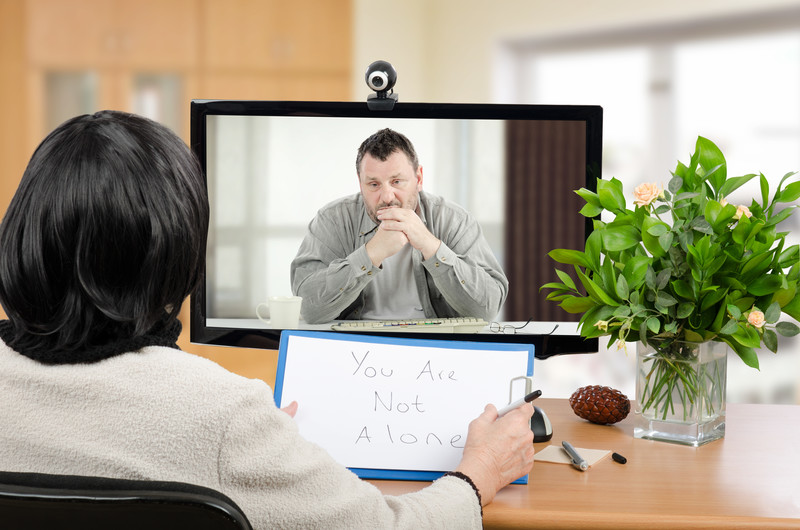What to know about teletherapy
In this age of ever-growing uses of technology, many medical groups are adding telehealth into their practices. Doctors have started incorporating online visits, such as video appointments to help reach more patients. This can be especially useful for those who may be too ill to make it into the office, or too busy to set up an office visit for a simple cold. Medical doctors are not the only ones using technology in this way. Therapists are also making teletherapy available to those who need the convenience. Online therapy is still fairly new, and many people may not know just how it works.
What is Teletherapy?
Teletherapy is therapy that takes place using an online video platform, a telephone, or even text or email messages. Teletherapy is a practice that has become more popular as technology advances, creating easier access to mental health care. This can be a great resource, especially for those who live in more remote areas, but teletherapy may not be best suited for everyone.
Consider Confidentiality
While traditional therapy requires you to drive to a therapist’s office, teletherapy provides a convenience of being able to meet wherever you’d like. However, this can also create some issues regarding confidentiality. A therapist’s office is a confidential meeting space in which the client can know that no one is listening in on their sensitive conversations. For teletherapy services, the therapist ensures that she is in a confidential location, such as her own office, but it is up to the client to ensure his own confidentiality, since he is not in the therapist’s physical space.
Tips for creating a confidential space:
1. Designate a room to be alone in during the time of a session
2. Use headphones to limit voices carrying
3. Limit or restrict visitors during session times
Limitations of Teletherapy
While there are benefits to teletherapy, there are some limitations. Certain presenting concerns are better served by in-office settings due to the higher levels of emotional stress. Those situations include high levels of suicidal thoughts or domestic violence. A therapist can more easily provide crisis help in person than remotely.
Get to Know Your Therapist
This is a good practice for any kind of therapy a person might do, whether in an office setting or online. Many therapists have specialty areas or certain ages they work with. If you can, look at a therapist’s profile or a practice’s website to learn more about who they work with and their preferred therapy style.
FAQs
1. What do I do during a visit?
An online session should be treated just like an in-office visit. Though you may be in a more familiar setting, such as your bedroom or living room, therapy is still a place to examine yourself and process thoughts and events. During online sessions limit things that might distract you or divide your attention, such as browsing the internet or checking your phone.
2. Does my therapist have to be in my same state?
Yes. A therapist is licensed to practice in a specific state and therefore must only work with clients who reside in that same state.
3. Do all therapists offer teletherapy?
No. Some therapists prefer to use only traditional forms of in-office therapy.
How to Get Started
Fuller Life now offers online therapy services with our resident therapist, Elisa Squier. You can read more about her and her therapy practices here. She is currently accepting new clients. Contact her to ask any questions or set up your initial session.
More information can be learned about our Telemental Health practices through our Telemental Health Informed Consent and Agreement.
References
Advantages and disadvantages of online therapy by Kendra Cherry

Contributed by Elisa Squier, M.MFT, LMFT Associate
Clinical Supervision by Amy Fuller, PhD, LMFT-S, LPC-S









